Badi Soch: The dragon must choose
This daily column includes Gateway House’s Badi Soch – big thought – of the day’s foreign policy events. Today’s focus is on Chinese investment in the disputed Great Renaissance Dam.

This daily column includes Gateway House’s Badi Soch – big thought – of the day’s foreign policy events. Today’s focus is on Chinese investment in the disputed Great Renaissance Dam.
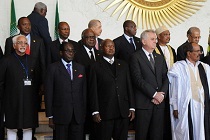 Courtesy: Ministry of External Affairs, India
Courtesy: Ministry of External Affairs, India
The role of the emerging economies of Africa was discussed at the recent summit of the African Union. Africa’s resources are crucial to fuel such economic powerhouses as India, Brazil and China, and India must accelerate its trade and aid relationship with the continent.
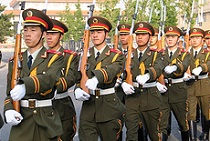 Courtesy: cornfed1975/Flickr
Courtesy: cornfed1975/Flickr
The Depsang valley incursion by the Chinese army may have moved the Indian Ministry of Defence out of its inertia in implementing long-pending proposals; but the lack of a comprehensive strategy to deal with the Chinese threat was especially evident in the manner in which decisions were taken to handle the situation.
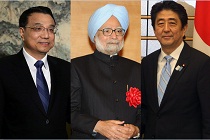 Courtesy: Ministry of External Affairs, India
Courtesy: Ministry of External Affairs, India
While the recent India-Japan Joint Statement contains significant breakthroughs, the China-Pakistan Joint Statement reveals the absence of warmth between India and China. With the current flurry of bilateral exchanges, India is fine-tuning its approach to emerging regional realities, as are others.
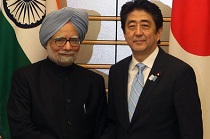 Courtesy: Ministry of External Affairs, India
Courtesy: Ministry of External Affairs, India
During his visit to Japan, Prime Minister Manmohan Singh spoke of the need to increase bilateral consultations on strategic issues. This, and other moves, indicate new developments in India’s Look East Policy, with alternative security and economic scenarios for regional actors in the context of the rise of China
 Courtesy: Jessica Taekman/Flickr
Courtesy: Jessica Taekman/Flickr
Indian Prime Minister Manmohan Singh and Japan’s Shinzo Abe are giving heft to a renewed partnership and a focus on the Indo-Pacific. Both nations must collaborate and work with South Pacific countries, especially Tonga, to counter China’s growing influence in this increasingly geopolitically important region
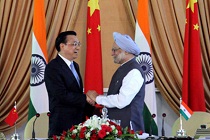 Courtesy: Ministry of External Affairs, India
Courtesy: Ministry of External Affairs, India
India has concerns vis-à-vis China such as the recent border intrusion, the sharing of water resources and the growing bilateral trade imbalance. Gateway House examines how the Indian government addressed these issues during the recently concluded visit of Chinese Premier, Li Keqiang.
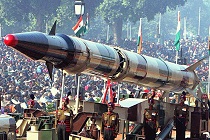 Courtesy: Nikkul/WikimediaCommons
Courtesy: Nikkul/WikimediaCommons
On April 24, former Indian Foreign Secretary, Shyam Saran, spoke in depth about India’s nuclear weapons policy. How can his speech be instrumental in dismissing the doubts that some in Washington have had over the credibility of India’s nuclear deterrent?
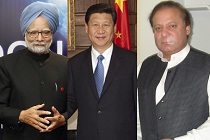 Courtesy: WikimediaCommons
Courtesy: WikimediaCommons
Will the India-Pakistan trade relationship improve after the elections in Pakistan on May 11? How India and China manage their trade, even when the exchange is strained, as it was after the recent military impasse on the Ladakh border, holds important answers
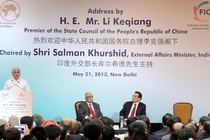 Courtesy: Ministry of External Affairs, India
Courtesy: Ministry of External Affairs, India
Chinese Premier Li Keqiang is also a salesman for his country – but he comes with the one offer no foreign dignitary has made so far: money. Cash-strapped Indian business especially those in the infrastructure and resource businesses, will certainly be looking now to China to make their dreams of survival come true.